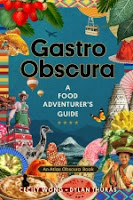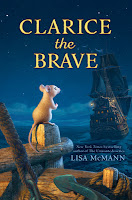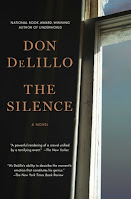Looks like we've got just a little more catch-up to play. Here are this and last week's staff reviews.
Two recommendations for Tales from the Café, by Toshikazu Kawaguchi. First, from Jason Kennedy: "Tales from the Café takes us back to the time traveling of Before the Coffee Gets Cold. Familiar faces bustle about the café, and one in particular still haunts the time traveling chair. Four stories again weave together to further the myth of the café, and so many questions I had at the end of the first one are answered here. There's a bit of calm and patience that permeates the stories, which unfold through various characters’ empathy towards others that they can't connect with in the here and now. Such an amazing story - I really hope the last book will be translated as well."
Kay Wosewick supports this one as well: "This book returns to a small coffee house in Japan where a special chair can take a person back or forward in time for as long as it takes a freshly poured cup of coffee to get cold. While the future cannot be changed, the author crafts very clever stories, all with inspired closure."
Daniel Goldin has a couple adult books to recommend. First is We Are Not Like Them, by Christine Pride and Jo Piazza. Daniel says: "An aspiring television reporter and the wife of a policeman, friends since childhood, find their relationship frayed by the shooting of a young Black man. This powerful story is sure to start a lot of important conversations. The authors do a great job creating sympathetic characters in Riley and Jen (though to my thinking, Riley is the true protagonist), with lots of interesting family dynamics and revelations both past (a lynching in Riley’s family) and present (Jen’s pregnancy complications) move the plot along. There’s some humor too, and even a little romance. I’m not giving anything away by saying there’s no way to have a completely happy ending, but maybe, just maybe, there’ll be at least understanding."
Daniel also recommends Squirrel Hill: The Tree of Life Shooting and the Soul of a Neighborhood, by Mark Oppenheimer. Of this he says: "Director of the Yale Journalism Initiative Mark Oppenheimer goes behind the headlines of the tragic Tree of Life shooting to explore the fascinating community of Squirrel Hill, a walkable Pittsburgh neighborhood that has retained both religious and secular Jews when so many others have scattered to suburbs. Even the Tree of Life building itself was home to three congregations of different denominations. In Oppenheimer’s exhaustive interviews, he found a pathway to healing that doesn’t always happen after other mass shootings – there wasn’t a single post-event suicide connected to the incident, and there were no controversies over how money flowed to victims and their families. But there was a cost too, at least for some, as activism was played down in favor of unity. I was pleasantly surprised how much I enjoyed Squirrel Hill, which is much more of an exploration of a community, rather than the crime drama or issue book you might have thought it was. There are so many interesting players in the story, not just the victims and their families, but folks like the Iranian student and his hugely successful fundraising efforts, and the young Christian woman who painted images in the Starbucks windows that became a symbolic center of the neighborhood. My top Hanukkah pick!"
Kay rounds us out with two more picks. In the grown folks section, she's backing Gastro Obscura: A Food Adventurers Guide, by Cecily Wong and Dylan Thuras. Kay says: "Drooling, dumbfounded, queasy, hungry, amazed, and many other feelings and thoughts flowed through me as I read this book - taking a couple of kitchen breaks along the way, of course. If Gastro Obscura doesn’t make you want to hop on a plane tomorrow to eat something amazing, well, I guess I'm dumbfounded again."
Kay also suggests What Storm, What Thunder, by Myriam JA Chancy: "The 2010 Haiti earthquake claimed a quarter-million-plus lives and forever changed millions of others. Chancy paints vivid images of chaos, devastation, horror, confusion, brutality, and regret, but also compassion, tenderness, and hope. Chancy distills extensive interviews into ten captivating, entwined stories that portray how seemingly similar traumatic experiences can have vastly different effects on individuals."
We've also good some books for young readers to suggest this week.
Kathy Herbst recommends The Troubled Girls of Dragomir Academy, by Anne Urso. From Kathy: "A thought-provoking feminist fantasy that drew me in from the first page to the last. 12-year-old Marya has always been told she has no meaningful place in the world - unlike her brother, who is being groomed to become a respected sorcerer. An intended mistake lands Marya in the Dragomir Academy. The bonds she forms with other students, some teachers and eventually her brother lead her to question all she's been told and to ask 'Who does this story serve?'"
Kay and Jenny Chou both recommend Any Sign of Life, by Rae Carson, author of YA hits like Walk on Earth a Stranger. To begin, Kay says: "Quite possibly the only people alive in their hometown, three teens drive toward Sandusky, OH, where a single radio station is still broadcasting. The broadcaster urges everyone to make their way to the station immediately. Great end-of-world construction tossed with touches of horror and humor. The first book in a new series, this will be a chart-topper."
And from Jenny: "Any Sign of Life by one of my long-time favorite YA writers, Rae Carson, is a must-read dystopian-sci-fi mash up that has so many twists and turns that I could not have stopped reading late into the night even if you’d paid me a million dollars. Carson taps into our deepest pandemic fear, not the one where we die but the one where we wake up alone. It’s almost a relief to slowly realize the virus in question wasn’t created here on earth. The sci-fi action kicks in and a battle to save our planet from invaders ensues. Main character Paige is a high school senior with a basketball scholarship to UConn when everything she knows crumbles away, and she’s suddenly stuck in a new reality. She’s a leader, and no doubt she’s brave, but it’s her loyalty and fierce determination not to lose her humanity that will make readers want to take this treacherous journey along with her. The supporting characters are a diverse group, and best of all is Paige’s seriously sweet romance in the midst of chaos. Fans of Neal Shusterman’s Dry will definitely want to move this to the top of their TBR list in October."
Finally, we return to Daniel in this section for Clarice the Brave, by Lisa McMann (the author behind The Unwanted series). Daniel says: "Ship mouse Clarice has already lost her mother and siblings when a crew mutiny sends her over the side of the ship with provisions, leaving her brother Charles Sebastian behind. What’s worse, in this small boat is not just the Captain and his loyalists but also Special Lady, the very ship cat who ate Clarice’s sister Olivia. This is just the beginning of an epic tale of adventure and friendship that already feels like a classic! Clarice must learn to trust Special Lady as she tries to figure out how she can ever get reunited with her baby brother. Almost driving the narrative are the words that Clarice’s mother said to her: ‘It only takes one mouse to believe in you. And that one mouse is me.’ So exciting, so emotional, so many lines I want to quote – Clarice the Brave is a triumph!"
Paper-paper-paperback picks! We got 'em.
First we've got two recommendations for the National Jewish Book Award Winner The Lost Shtetl, by Max Gross. From Chris Lee: "It’s a myth, it’s a fable, it’s something like a newly discovered religious text. In a world with a seemingly endless supply of novels about the ends-of-the-earth reaching consequences of WWII and the Holocaust, The Lost Shtetl is a wondrous left turn – the story of one tiny Jewish village in Poland that the Nazis missed and time forgot. Learn along with the villagers of the past horrors they escaped and the present horrors (television, tourists, inflation, and postal codes, yech!) of the world that’s discovered them. With the village itself as a sly, sighing narrator, Gross has written a clever, affecting parable of the ways history, sooner or later, reaches us all."
And from Daniel Goldin: "In The Lost Shtetl, Kreskol, a Jewish settlement in present-day Poland, is discovered when, after a matrimonial fallout, the wife leaves town, the husband follows suit, and the town sends out a search party of one, a mamzer baker’s apprentice whom nobody will miss. When Yankel (the baker) is admitted to a hospital in nearby Smolskie, the cat’s out of the bag, or at least it will be if the medical staff don’t decide he’s either delusional or scamming them. On top of the circuitous paths of Yankel, Pesha, and Ishmael (the estranged couple), the newly discovered town must contend with greed, a tourism boom, an ideological rabbinical battle, and a good dollop of antisemitism. Meanwhile, the runaways must contend with what kind of people (and Jews) they are going to be, now that their reality rug has been pulled out from beneath them. When the copy for a novel name checks Gary Shteyngart, Michael Chabon, and Nathan Englander, what jazzy comparison is left for me? Would it be too much for me to call this philosophical and often hilarious novel the bastard child of Isaac Bashevis Singer and Cynthia Ozick?"
Chris Lee also recommends The Silence by Don Delillo. From Chris: "The American bard of the great collapse has done it again. The Silence is a piercing novella that asks: what will we grasp for when we lose that which anchors us to modernity? As always, Delillo crafts uniquely jarring sentences to capture the quotidian ways in which language alienates us from our animal selves. Moreover, his genius really goes on display as he finds new ideas (and desires and fears!) in themes he’s been exploring for decades - football as war as annihilation, the obsession with the savior figure - even as he deconstructs them. An educated guess says this book was rushed to publication to meet the moment – and, in a rare case, rightly so. Who else could so humanely soothe us during crisis with a balm made from our terrors?"










No comments:
Post a Comment